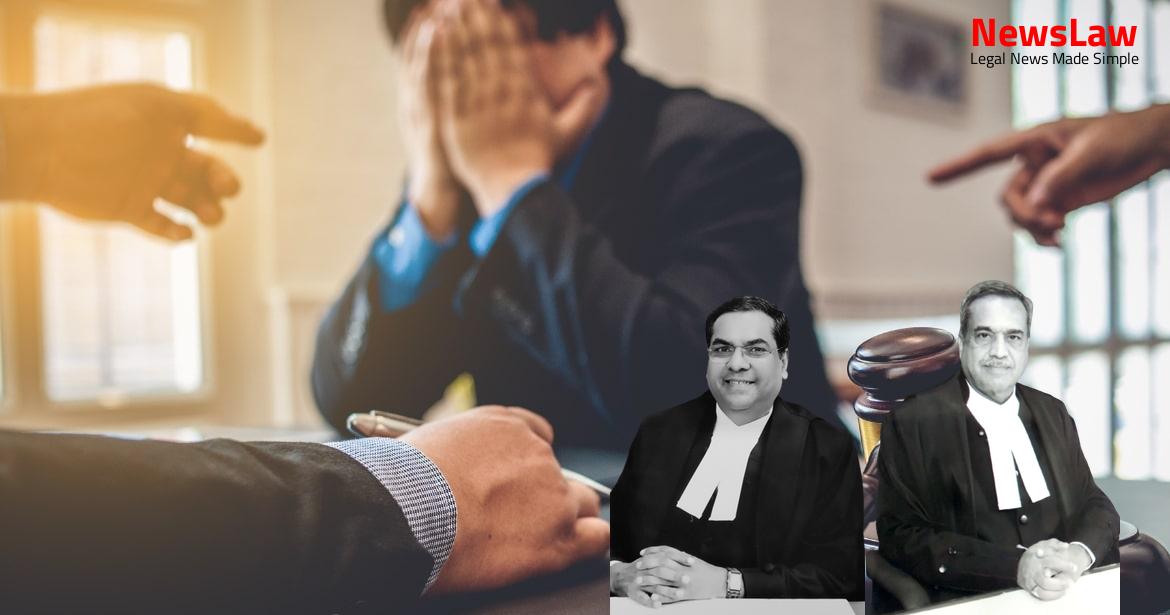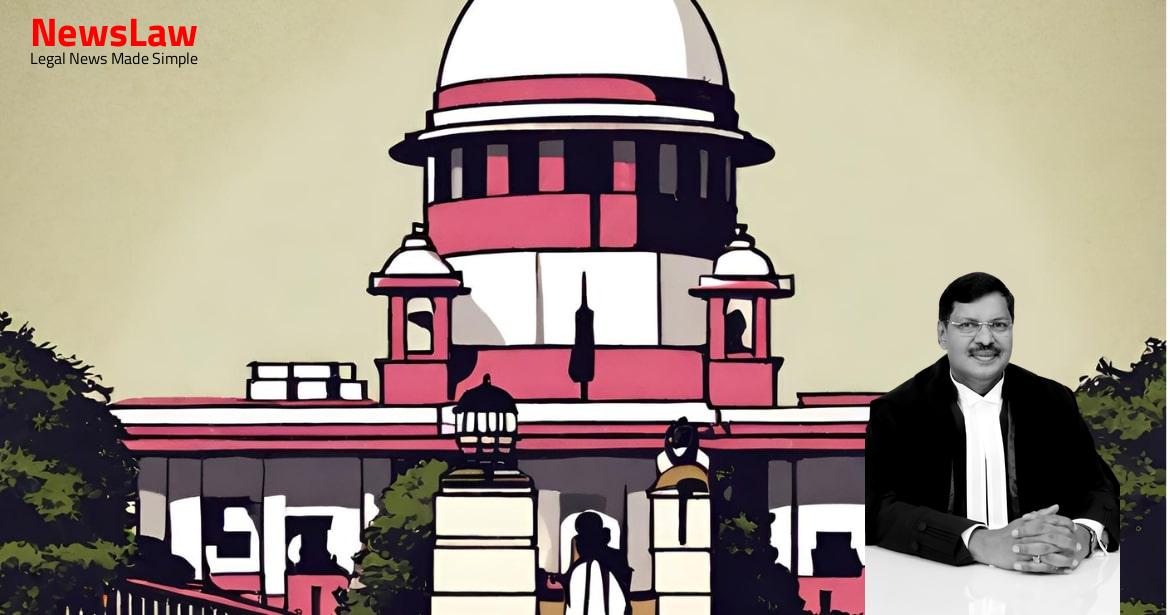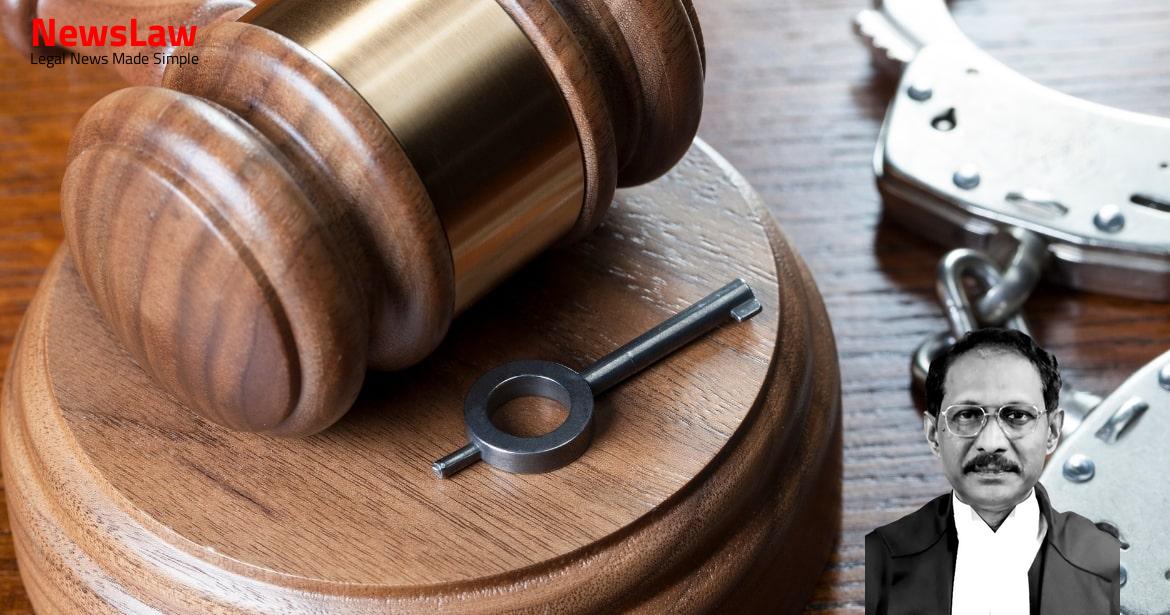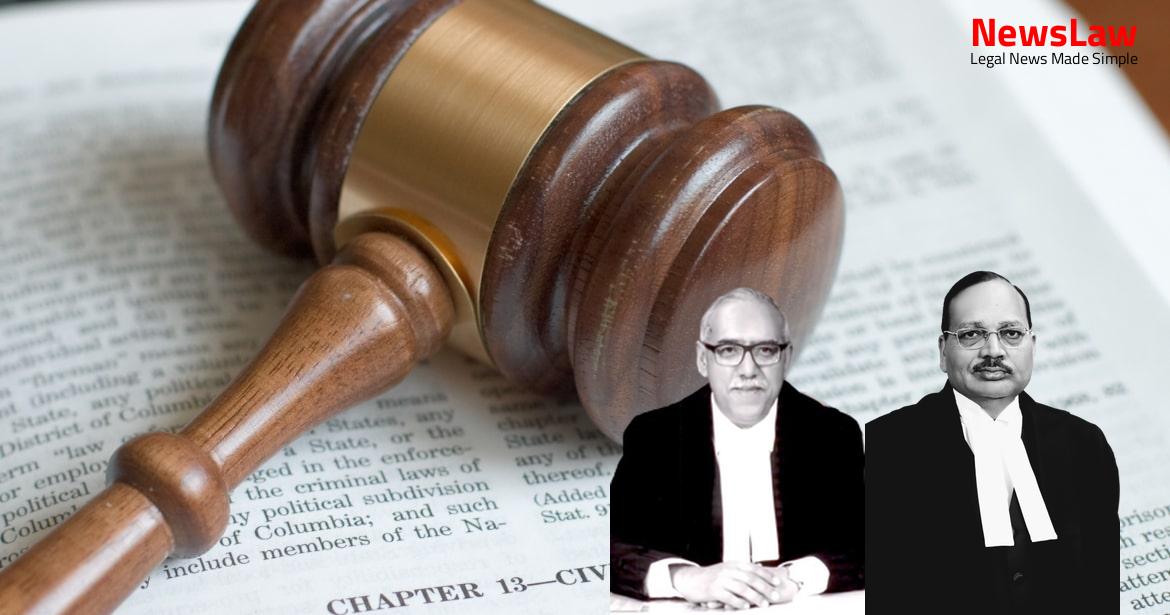This case delves into the depth of legal principles surrounding the maintainability of writ petitions against private entities, particularly in the context of the SARFAESI Act. The focus lies on the court’s meticulous analysis of the law and precedents to determine the appropriate course of action in challenging actions by private parties through writ petitions.
Facts
- Respondent No.1, Vishwa Bharati Vidya Mandir, availed credit facilities of Rs.105,60,84,000 from Saraswat Co-operative Bank Limited.
- Possession notice under Section 13(4) of SARFAESI Act issued to secure repayment violated Rule 8(1) of Security Interest (Enforcement) Rules, 2002.
- High Court passed interim orders maintaining status quo on possession of mortgaged properties subject to payment of Rs. 1 crore.
- Appellant opposed writ petitions, stating the letter dated 13.08.2015 was a proposed action, not under Section 13(4) of SARFAESI Act.
- High Court extended interim orders multiple times, requiring borrowers to deposit additional sums of money.
- Equitable mortgage created by deposit of title deeds over immovable properties.
- Nonperforming Asset status declared in April 2013 due to defaults in repayment by borrowers.
- NPA account assigned to appellant in March 2014.
- Letter of Acceptance executed in February 2015, acknowledging liability but repayment not made.
- Appellant, Phoenix ARC Private Limited, filed appeals against interim orders and writ petitions.
- Similar case with St. Ann’s Education Society availing credit facilities and facing possession threat by appellant.
- Rely on the above decisions to support the argument.
- Pray to set aside the impugned order dated 27.03.2018.
- Request to dismiss the writ petitions filed before the High Court as non-maintainable.
Also Read: Ruling on Circumstantial Evidence in Murder Case
Arguments
- The petitioner, representing the borrowers, argues that writ petitions against a private party like ARC, even for alleged violations of Rule 8, are maintainable.
- Citing various court decisions, the petitioner asserts that a writ can be filed against a private entity performing public functions.
- The petitioner contends that the ARC failed to fulfill its duties under the SARFAESI Act, justifying the writ petitions.
- Despite objections on the maintainability, the High Court granted interim relief to the borrowers, leading to a halt in SARFAESI Act proceedings.
- The petitioner highlights the importance of compliance with SARFAESI Act rules and justifying the High Court’s intervention based on non-compliance.
- The borrowers argue that the alternative remedy of filing an appeal under Section 17 does not bar the writ petition.
- The High Court’s interim order, stayed by a previous court order, is crucial in the ongoing legal proceedings.
- Reliance on the decision of United Commercial Bank Vs. Bank of India and Ors., (1981) 2 SCC 766.
- Recourse taken under Section 19 of the Recovery of Debts due to Banks and Financial Institutions Act, 1993 by filing O.A. No 715 of 2017 before the Debts Recovery Tribunal, Bengaluru.
- Interim orders passed by the Tribunal directing the borrowers to deposit fees collected by educational institutions into the Bank and restraining the borrowers from dealing with certain properties.
- Relying on the decision in J. Rajiv Subramaniyan and Anr., urging that the High Court did not err in entertaining the writ petitions.
- Argument that since the appeals are against the interim order granted by the High Court, they may not be entertained, and the interest of the appellant is fully protected.
- Suggestions that the writ petitions be considered and disposed of by the High Court on merits, ensuring no prejudice to the appellant.
Also Read: Challenging Legal Presumptions in Negotiable Instrument Cases
Analysis
- The High Court was criticized for entertaining the writ petitions against the proposed action under Section 13(4) of the SARFAESI Act, which was deemed as an abuse of the court’s process.
- The appellant argued that the borrowers should have availed the alternative remedy under Section 17 of the SARFAESI Act instead of filing writ petitions.
- The decision in Mathew K.C. case was referenced to emphasize that filing writ petitions in such cases amounts to abuse of court process.
- The High Court’s continuance of ad-interim relief without proper reasoning was also pointed out as unjustifiable.
- The actions of banks/financial institutions like private ARCs were deemed as commercial transactions and not performing public functions usually expected from state authorities.
- The importance of self-restraint by High Courts in exercising Article 226 powers was highlighted, especially when dealing with recovery actions by state entities.
- The significance of statutory forums for redressal of grievances over writ petitions was stressed upon.
- The impact of granting stays on actions for recovery of dues by financial bodies on public projects and obligations was discussed.
- The High Court must consider whether the petitioner has any alternative or effective remedy for the resolution of the dispute.
- The High Court will ordinarily not entertain a petition under Article 226 of the Constitution if an effective remedy is available to the aggrieved person.
- Legislations enacted for recovery of public dues contain comprehensive procedures and quasi-judicial bodies for redressal.
- Remedies available under relevant statutes must be exhausted before availing remedy under Article 226 of the Constitution.
- Exceptions to the rule of alternative remedy include instances where the statutory authority has not acted in accordance with the law or in defiance of fundamental principles of judicial procedure.
- The interim order passed by the High Court prejudiced the rights of the secured creditor to recover the amount due.
- The stay granted by the High Court would negatively impact the financial health of the secured creditor/assignor.
- The secured creditor and/or its assignor have the right to recover the amount due from the borrowers.
- The High Court should have been cautious and careful in granting stays in such matters.
- The proceedings before the High Court merit dismissal in light of the mentioned circumstances.
Also Read: Legal Analysis Critique in High Court’s Quashing Order
Decision
- Dismissal of Writ Petition Nos. 35564 to 35566 of 2015 by the High Court.
- Success of the present appeals.
- Vacation of ex-parte ad-interim order dated 26.08.2015, further extended by orders dated 28.02.2017 and 27.03.2018.
- Allowance of the present appeals with costs to be paid by the original writ petitioners.
- Costs quantified at Rs.1 lakh in both cases, to be directly paid to the appellants within four weeks from the date of the judgment.
- Disposal of pending application(s).
Case Title: PHOENIX ARC PRIVATE LIMITED Vs. VISHWA BHARATI VIDYA MANDIR (2022 INSC 44)
Case Number: C.A. No.-000257-000259 / 2022



